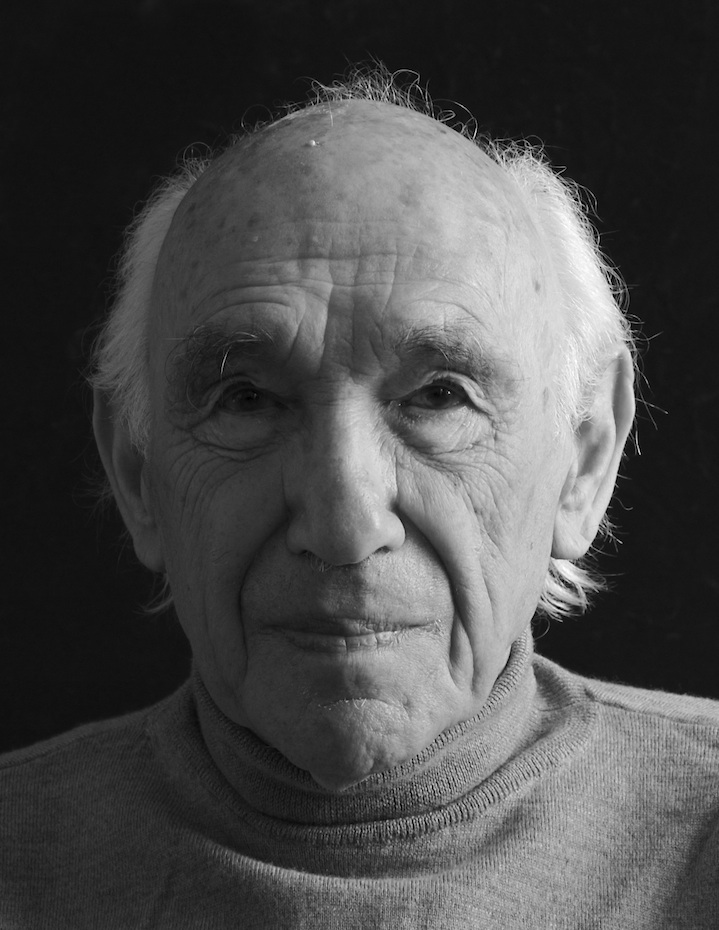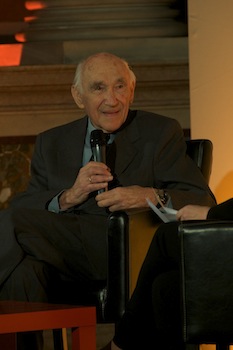Kurt W. Rotschild grew up in modest surroundings and was influenced by the “Red Vienna” in the 1930s. During his adolescence he was faced with the disastrous economic and social consequences of the Great Depression in Austria. Undeniably, this time made a major impact on his future research interest. Rothschild placed questions about unemployment, the distribution of income and about power at center stage of his complete works. His view on the role of economics as a science was shaped in these days. In the year 1966 in the introduction to his book “Marktform, Löhne, Außenhandel” he explained his point of view on economics:
„Ultimately, economics shall be aware of the fact, that theory must not become an end in itself. Theory shall enable a detailed examination of the surrounding world in order to make it more humane.“
Study
Rothschild, actually, wanted to study mathematics and physics. However, he chose to study law in order to ensure a stable income. At that time law students among other subjects were trained intensively in public finance. Thus, Rothschild learned also about the ideas of the Austrian economists, like Menger, Böhm-Bawerk and Wieser. Most of all, he was fascinated by the clear theoretical and analytical approaches of economics and also by its social and economic relevance. Further, it is interesting, how Rothschild appreciated neoclassical economics, but also scarifying it, when it became too dominant and suppressed other approaches (historical, sociological, institutional etc.).
Glasgow & John Maynard Keynes
 In 1938, shortly after he had finished his study, Rothschild flew together with his wife to Glasgow were he worked at university until 1947. At that time he was confronted with the arising Keynesian Revolution, which critized core concepts of neoclassical economics. At the age of 28, Rotshild has sent an article to the Economic Journal, the “Core Journal” at that time, which was edited by John Maynard Keynes (JMK).
In 1938, shortly after he had finished his study, Rothschild flew together with his wife to Glasgow were he worked at university until 1947. At that time he was confronted with the arising Keynesian Revolution, which critized core concepts of neoclassical economics. At the age of 28, Rotshild has sent an article to the Economic Journal, the “Core Journal” at that time, which was edited by John Maynard Keynes (JMK).
„Full of youthful enthusiasm I sent my first theoretical article to the leading journal – the Economic Journal. He [JMK] was the editor. A few days later I received a letter from him [JMK], saying, ’I like that, I will publish it’.”
Return to Austria
By the time of Rothschild’s return from Scotland to Austria he was equipped with a sound theoretical basis in economics comprising several different strands. First, he acquired Marxist theory in self-study and reading groups of the ‘Association of Socialist pupils’ in the 1930s. Second, he studied the neoclassical theory during his study of law (1934-1938). Third, he intensively exposed himself to Keynesianism when he resided in the Scottish exile. Remarkably, Rothschild managed to integrate these three economic schools into his „box of tools “. In an undogmatic and playful way he used different tools which seemed most appropriate for answering the respective research question. This makes Rothschild an admirable representative of economics as a pluralist science.
Institute of Economic Research & University of Linz
In 1947, after his return to Vienna, Rothschild was not welcomed with open arms, like many other people with Jewish origin or socialist background. However, he got employed at the Institute of Economic Research (WIFO) due to a letter of recommendation written by August von Hayek (!). Rothschild’s numerous publications as well as several narrations of former colleagues display the constructive and productive climate at the WIFO, which was shaped by Rothschild and his friend, Josef Steindl (1912-1993) – another great Austrian economist.
In the year 1966 Rothschild became professor at the newly founded University of Linz and animated the also newly established study of economics. Many of his students are now in important positions in research, business and politics and admire Rothschild as an excellent conveyor of knowledge, economic theorist and economic politician. From 1971 until 1972 Rothschild worked as Rector of the University of Linz and in 1984 he became emeritus professor.
Emeritus Professor, but no retirement
 After becoming emeritus professor Rothschild moved to Vienna together with his wife. Being emeritus professor did not imply being in retirement for him. Rothschild did not stop teaching and writing. In 1966 he became an advisor to the WIFO and worked there regularly, especially after he left Linz. He was always available for friendly and helpful talks. He worked into old age and published several books and articles. His last book, he published together with Hans Bürger at the age of 95. Furthermore, Rothschild was invited frequently to national and international symposia. Many still remember his carefully chosen statements about several economic policy issues.
After becoming emeritus professor Rothschild moved to Vienna together with his wife. Being emeritus professor did not imply being in retirement for him. Rothschild did not stop teaching and writing. In 1966 he became an advisor to the WIFO and worked there regularly, especially after he left Linz. He was always available for friendly and helpful talks. He worked into old age and published several books and articles. His last book, he published together with Hans Bürger at the age of 95. Furthermore, Rothschild was invited frequently to national and international symposia. Many still remember his carefully chosen statements about several economic policy issues.
Rothschild encountered new ideas always with an open state of mind and scrutinized and discussed them adamantly in conjunction with constructive comments. Due to his openness to diverse theories, methods and issues, Rothschild is known as the Doyen of Economics in Austria.
Honory doctor
1987: Universität Aachen
1990: Universität Augsburg
1995: Universität Bremen
1995: University of Leicester
2004: Wirtschaftsuniversität Wien
Awards
1983: Medal of science of the city of Linz
1983: honorary price of the city of Vienna
1986: Austrian „Ehrenkreuz“ for Science and Art, I. class.
1999: Honorary price of Upper-Austria
2010: Bruno-Kreisky-Price for the political book (special price for the complete work)
Since 1998 the Economic Institute at the University of Linz organize the yearly Kurt-W.-Rothschild-Lecture.
Autobiography
Rothschild’s unique biography was published in the American Economist. It is only available on the internet: “To Push and to be pushed”